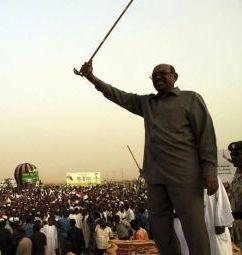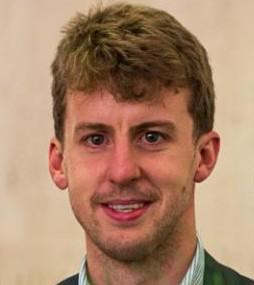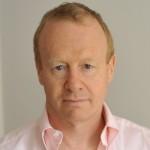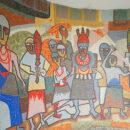Sudan: What Next? – By Magnus Taylor

 In early July, Sudan’s President Omar el-Bashir announced that the National Dialogue (ND) would restart “after Ramadan”. On August 5th President Bashir went further, stating that the ND would recommence on October 10th. Just two days earlier vice president Bakri Hasan Salih had said that the government would provide the necessary guarantees for the coalition of armed actors, the Sudan Revolutionary Force (SRF), to participate in talks within Sudan.
In early July, Sudan’s President Omar el-Bashir announced that the National Dialogue (ND) would restart “after Ramadan”. On August 5th President Bashir went further, stating that the ND would recommence on October 10th. Just two days earlier vice president Bakri Hasan Salih had said that the government would provide the necessary guarantees for the coalition of armed actors, the Sudan Revolutionary Force (SRF), to participate in talks within Sudan.
The African Union High Level Implementation Panel for Sudan (AUHIP) chief, Thabo Mbeki, highly involved with the failed earlier attempts at ND, also visited the country in early August, speaking to both government and opposition representatives.
However, there is little indication that an appetite exists for further “national dialogue” amongst Sudan’s multi-faceted opposition parties and armed movements. Several, including Sadiq al-Mahdi’s National Umma Party (NUP) and former NCP intellectual Ghazi Salahuddin Atabani’s Reform Now Movement, have already stated that they would not participate without significant changes to the way the process was structured and mediated.
The Fitful National Dialogue
The ND was ostensibly conceived in January 2014 as an inclusive consultative process intended to bring all Sudan’s armed and non-armed opposition groups around the table with the ruling NCP to discuss a peaceful, political solution to the country’s chronic conflicts. The immediate context was the outbreak of protests in major urban areas in autumn 2013, linked to high food prices; the regime’s crackdown killed at least 200.
Also significant were ongoing conflicts in the periphery, especially in Darfur and South Kordofan and Blue Nile. Sceptics, however, always saw it as a method of keeping the opposition at bay until the now concluded 2015 elections, and a mechanism through which a weakened opposition could be subsequently co-opted.
In April 2014 the government convened a roundtable that included representatives from over 90 Sudanese political parties. A National Dialogue Committee was established made up of 7 opposition and 7 government-leaning parties, including the “traditional” sectarian opposition, Islamist NCP split-offs, as well as former rebel movements from the east and west of the country.
The ND process quickly stalled however, as participants accused the government of failing to create a suitable enabling environment, including periodic crackdowns against civil society and the press. The arrest of National Umma Party (NUP) leader and former prime minister, Sadiq al-Mahdi, although he was released in June 2014, led to his signing the “Paris Declaration” with a coalition of armed opposition groups, the Sudanese Revolutionary Forces (SRF) in August 2014, and announcing his party would boycott any election not held under a transitional government.
Despite the hardening positions, in September AUHIP managed to broker an agreement between government and opposition representatives on the ND. This progress was negated by the impasse in the parallel AUHIP-mediated talks between the SRF and the government aimed at “synchronising” peace negotiations in Darfur and the Two Areas.
In March 2015 a broader group of opposition (including armed groups) and civil society managed to put aside their differences – just – and signed “The Berlin Declaration” announcing their willingness to participate in another pre-meeting on ND. But with elections in sight, the NCP pulled out of that meeting at the eleventh hour and the opposition divided once more amid recriminations.
Managing the NCP
Whilst discussions surrounding the ND were unfolding, it was becoming increasingly evident that divisions were developing within the NCP; during the party’s National Convention in October 2014, Bashir only narrowly managed to secure a required majority to be nominated as the party’s presidential candidate.
His chosen lieutenants, Bakri Hasan Salih (first vice president) and Ibrahim Ghandour (chief presidential advisor) also received fewer votes than their predecessors Ali Osman Taha and Nafie Ali Nafie – unceremoniously dumped in December 2013, but still popular especially within the Islamist wing of the party.
But with Bashir installed as the NCP presidential candidate the April 2015 polls passed uneventfully with most original ND participants boycotting. Bashir won 94 per cent of the presidential vote against a field of non-entities and little effective electoral competition. Turnout was very low, officially 46 per cent, with others claiming it was only 15 per cent.
The Democratic Unionist Party – the only major opposition party to contest (and already a partner in the outgoing government) – came a distant second with 25 seats in the National Assembly (out of 426), with other smaller, often regionally-based, parties picking up some seats, which the NCP had agreed not to contest.
Despite the handsome majority, the NCP’s internal grumbles returned and delayed the formation of a new government. When eventually announced, pundits poured over the promotions, demotions and omissions, broadly agreeing that the reshuffle had been used to further buttress the president’s power over the NCP, which had appeared somewhat contested in previous months.
Ibrahim Ghandour’s sideways shift from chief presidential assistant to foreign minister – pushing out the more combative Ali Karti – presented a more pragmatic face to the international community and seemed to back the president’s new-found openness to talks with the West; U.S. Special Envoy Donald Booth will visit in late August.
Ghandour was replaced as presidential assistant by Ibrahim Mahmoud Hamad – an ultra-loyalist former interior minister with no NCP support base. But in return for this internally unpopular choice, Bashir was forced by the party and the military (a key pillar) to shift Abdelrahim Hussein – a close ally – from his long-held position as defence minister to governor of Khartoum (a profitable sinecure nevertheless).
Next steps
As with Bashir’s careful foreign relations realignment following the Islamic movements’ post Arab Spring reversals, notably rapprochement with Egypt and the public dropping of Iran at the beginning of the Yemen crisis, the post-election government is the result of Bashir’s long-term reshaping of the NCP regime. But what precisely this administration will do, and how much the announced recommencement of the ND is simply furthering its own interests, is a matter of considerable uncertainty.
Attempts to encourage an end to Sudan’s worsening conflicts and to halt the deterioration of economic conditions for the impoverished majority, continues to suffer from the gathering political vacuum within the NCP – a lack of agreement among the NCP’s diverse internal constituencies and especially the military’s resistance to concessions to the SRF – and an absence of credible alternatives. Some basic principles should however be considered:
- International attempts to facilitate further “national dialogue”, for example via the AUHIP and parallel German initiatives, should recognize that Bashir (and the security apparatus in general) have strengthened their position and are unlikely to make significant concessions to the opposition while the current status quo remains favourable.
- Sudan’s economy remains weak, with inflation running at around 18 per cent. The 2013 riots in Khartoum were directly attributed to dire economic performance and attempts to reduce government spending by lowering costly subsidies on fuel (which in turn increased prices of basic foods staples). This is likely to make Khartoum more open to engagement with a multiple international partners, including those in the Gulf, as well as increasing overtures towards western powers – notably the US – for relaxation of sanctions and debt relief.
- The NCP is an increasingly pragmatic force internationally as is demonstrated by its diplomatic shift to participate in the Saudi-led “Operation Decisive Storm” in Yemen and its clear downgrading of ties with Iran, as well as its relative restraint shown during the South Sudan crisis.
Magnus Taylor is Sudan and Uganda analyst, International Crisis Group. Follow him @MagnusGTaylor.






Great read, thanks. I think Hassan Al-Turabi will be playing an important role in mending the splits between the Islamist-leaning formations, especially with Reform Now and the Mahdists. At least he’ll try to. If that’s successful then the NCP will be in a stronger position but peace with SRF elements will look less likely.